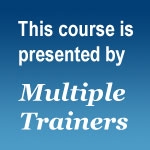
NVC Resources on Intention
-
In this prerecorded telecourse, Miki Kashtan uses an interactive dialogue to address some of the most common questions among new NVC facilitators and trainers.
-
In this inspiring audio, Kelly Bryson, veteran CNVC Certified Trainer and author of many NVC books and articles, explores the importance of setting a clear intention and then clarifies the difference between pain and suffering.
-
An exploration of four types of feedback: destructive criticism, constructive criticism, feedback by demonstration and dialogue.
-
Watch this video with CNVC Certified Trainer Jim Manske to explore the practice of Self-Empathy through a different lens. Included is a unique four-step Self-Empathy process that culminates in a focus of gratitude.
-
The wisdom which NVC is based on is as old as humanity itself. This telecourse recording draws insights from NVC’s elder siblings of Taoism, Buddhism and indigenous culture to offer new ways of approaching common NVC ‘stuck’ places.
-
Join CNVC Certified Trainers, Raj Gill and Mary Mackenzie as they explore the Nonviolent Communication process of Empathy. This audio will support people with a basic understanding of Nonviolent Communication who want to deepen their ability for empathic presence.
-
Inbal answers a parent's question about praise and offers a perspective on how praise translates into the NVC framework.
-
Jim and Jori offer a tip to stay present in the face of our reactivity to witnessed conflict.
-
Who does not want to be understood? In Tip #6, Eric shows you how to deepen connection and trust by checking your understanding with the person you are conversing with.
-
Trainer Tip: The change you're looking for begins with a single step.











